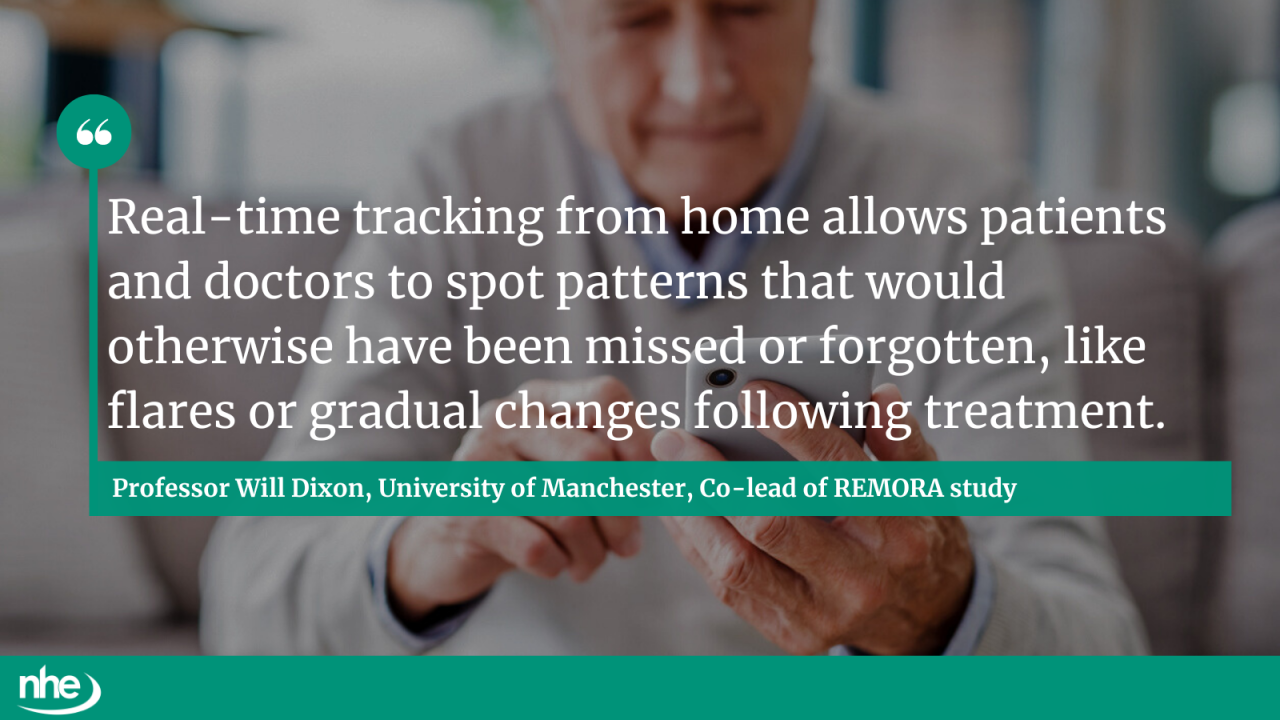Researchers at the University of Manchester will trial a system to allow patients to add their daily symptoms to their health record, in a first for the NHS.
The test will apply to people living with rheumatoid arthritis, who will be able to upload their symptoms on a day-to-day basis, offering a clear overview of the ups and downs of their health in between appointments.
The Remote Monitoring of Rheumatoid Arthritis (REMORA) system allows patients to download a symptom tracking app on their personal devices and sign in at home via NHS login.
The new system will help doctors to gain a better understanding of a patient’s health over a long period than could otherwise be ascertained during a short consultation.
Professor Will Dixon from The University of Manchester is co-lead for the REMORA study and is a consultant rheumatologist at Salford Royal Hospital.
He said: “By tracking symptoms day-to-day and making them automatically available at consultations within the electronic medical record, we will generate a clearer picture of how someone has been in the last six months which could have a transformative impact on treatment and care.”

The trial is being funded by the National Institute for Health and Care Research (NIHR) and Versus Arthritis. It will allocate patients at random to symptom tracking, and will run in 16 hospitals across Greater Manchester and Northwest London throughout 2024-25, with the results expected in 2026.
If the test shows positive results, the team hopes that it will become a funded NHS service available to all patients with rheumatoid arthritis and other long-term conditions.
Dr Sabine van der Veer, a senior lecturer in health informatics at the University of Manchester, is the other co-lead for the study.
She said: “A major advantage of REMORA is that we have successfully sent patient’s data into the NHS.
“The data is available during a consultation, seen from within the electronic patient record that the clinician is already using to manage the patient’s care.
“Patient records have historically only included information entered by clinicians. We are changing this, by learning how patients can contribute information themselves and ultimately improve their long-term health.”
Image credit: iStock



















